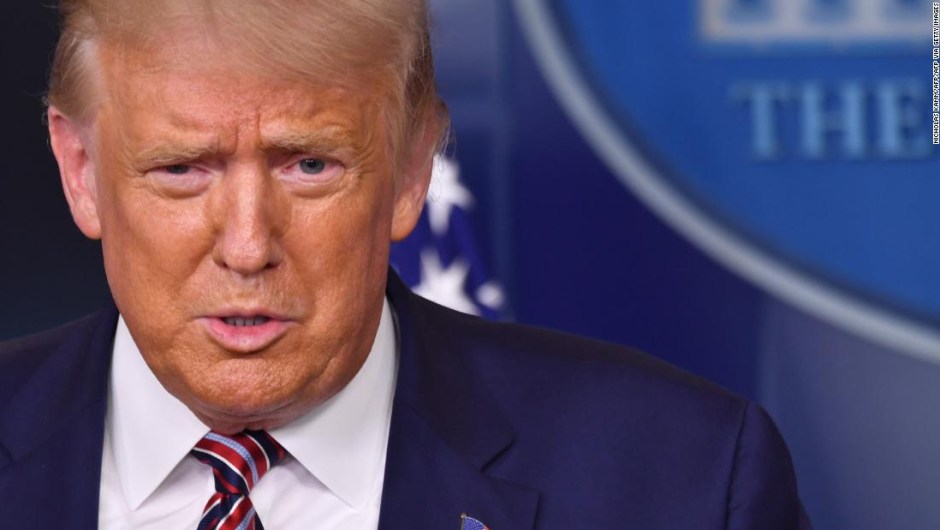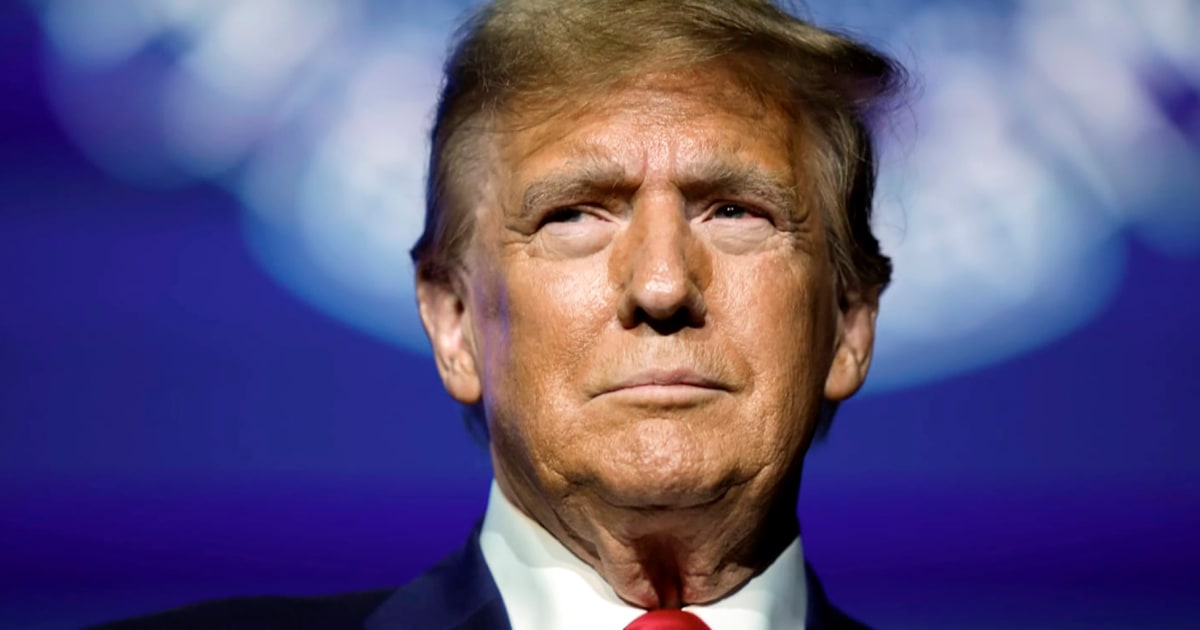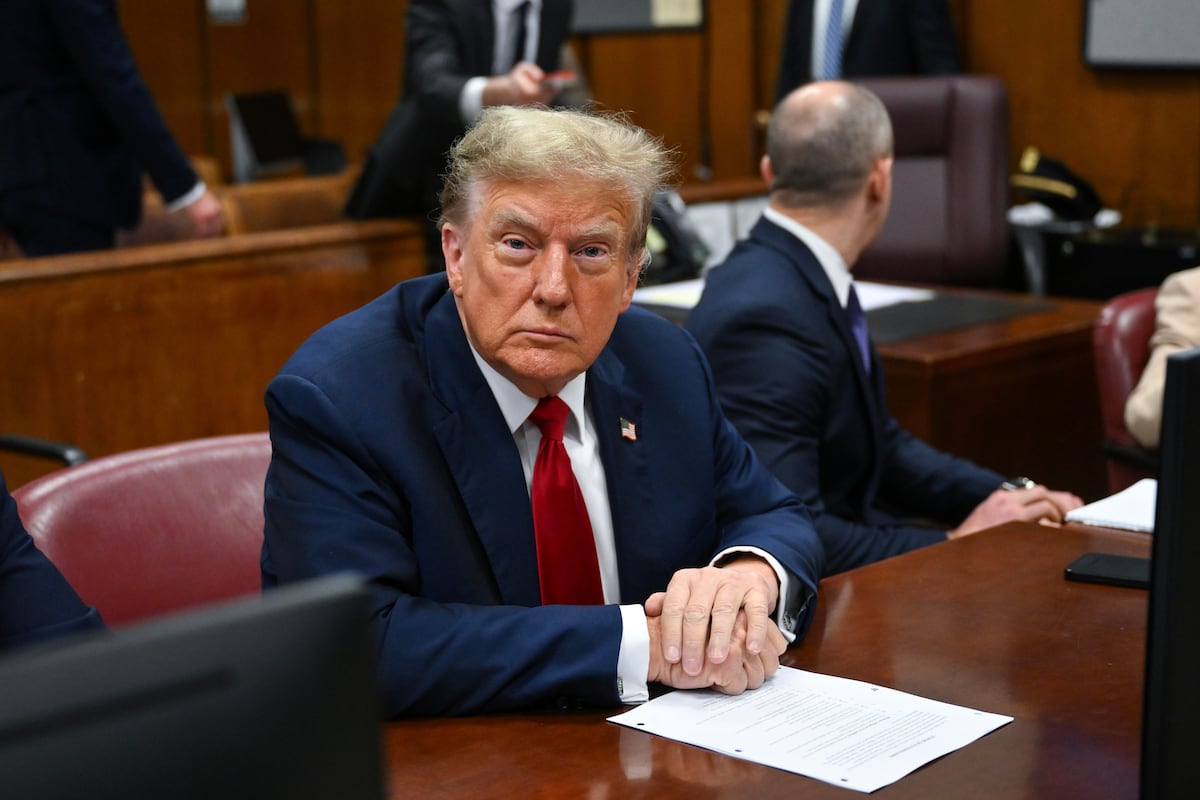Editor's Note: Kara Alaimo, Assistant Professor of Public Relations at Hofstra University, is the author of "Pitch, Tweet, or Engage on the Street: How to Practice Global Public Relations and Strategic Communication." She was a spokesman for International Affairs in the US Department of the Treasury during the Obama administration. Follow her on Twitter @karaalaimo. The opinions expressed in this comment are solely those of the author. See more opinion at cnne.com/opinion. (This story was first published on June 1, 2019, and has been updated to reflect the President's recent comments on Kamala Harris.)
(CNN) - Donald Trump has a "nasty" problem.
It happened again (of course it did) on Tuesday, at a press conference, when the president was asked about the choice of Democratic presidential hopeful Joe Biden of Sen. Kamala Harris as his running mate.
“She was very, very unpleasant, for - one of the reasons that surprised me was very - she was probably even more unpleasant than Pocahontas with Joe Biden. She was very disrespectful to Joe Biden, and it is difficult to choose someone who is so disrespectful, "he said, also tracing something old related to Senator Elizabeth Warren, by the way.
We have been here before with his epithet towards women.
Just a year ago, Trump called Denmark's Prime Minister Mette Frederiksen "unpleasant" after she called his interest in buying Greenland "absurd."
- LOOK: Trump will be a probable loser in the elections, predicts Allan Lichtman
And in June of last year, the president called Nancy Pelosi a "nasty, vindictive, horrible person" after a Fox News interviewer brought up a Politico report on Pelosi telling Democrats they were pushing for a impeachment that he would rather see Trump "in prison" (a Pelosi spokeswoman said she could not confirm the comment).
Trump also launched the epithet "disgusting" earlier in an interview with the British tabloid The Sun in which he was asked about comments that the Duchess of Sussex, Meghan Markle, had made in 2016 to television host Larry Wilmore, calling Trump from 'misogynist'. "" I didn't know it was unpleasant, "said Trump. "I hope you are good".
At this point, we are used to the insults of the president: he is not very presidential and clumsy.
But "unpleasant" is something that sounds meaningful: it seems to be reserved for women. Recall that Trump infamously interrupted Hillary Clinton during the final debate of her 2016 presidential campaign to call her "a disgusting woman," a comment so obviously gender-based that many women responded by making claims. A website that started selling "Nasty Woman" t-shirts reported that its design went viral overnight, generating tens of thousands of orders.
That Trump chose to throw the same insult at Markle, while trying to defend himself against his 2016 claim that he is a misogynist, is ironic. That he hit Pelosi the same way, even after receiving criticism for Markle's hit, is telling. He did that again with the Danish Prime Minister… well, here we have a pattern.
It would be nice to be able to ignore this immature behavior at this point in this presidency. But it is essential that we never feel numb. To do so would be to ignore the consequences it can have for women. A misogynist cannot be expected to acknowledge discrimination and abuse, much less to fight for leaders and the legislation that would protect women from them. And the country must demand more.
In fact, after decades of feminist advancements, the belief that women exist to satisfy men's egos and desires was, we had reason to believe, on the verge of disappearing, until Trump revived it. Now, too often, Trump signals through words and actions that that is acceptable. Consider, for example, that several of Trump's appointed advisers and officials have been accused of allowing abuse of women or misogyny.
And the president's election (since he retired) to the Federal Reserve Board, Stephen Moore, has been arguing against gender parity for 25 years (he responded to some of the criticism he received by saying he was joking).
- MORE: Biden and Harris launch presidential campaign with strong words against Trump
Of course, Trump has long defended his often troubling history with women by pointing to all the older women he has surrounded himself with in his company and administration. That's a good point, but it just goes to show that you are not sexist. However, he is a misogynist. There is a difference.
Cornell University philosophy professor Kate Manne explains in her 2018 book, "Down Girl: The Logic of Misogyny," that "sexism alone implies belief in the superiority of men over women in high prestige and masculine code domains (such as intellectual endeavors, sports, business and politics), and the naturalness or even the inevitability of men's dominance in them.
Trump has hired several women in very high positions. These include White House Counselor Kellyanne Conway, the first woman to lead a major party winning presidential campaign; her daughter Ivanka Trump, a key adviser; and Gina Haspel, head of the CIA.
And then there is Barbara Res, who worked at the Trump Organization for more than 10 years in positions that included senior vice presidency; and Louise Sunshine, who worked for Trump in the Trump Organization for 15 years and later became the organization's executive vice president.
Powerful women have been given serious authority; he has shown that he is not sexist.
But misogyny is another story, as Markle perceived. Manne argues that misogyny involves punishing women who don't act like men want. This is exactly what Trump does, and he does it publicly. He called Pelosi, Markle, Clinton, and now Harris "nasty."
He once called his assistant, Omarosa Manigault, "that dog" after she wrote something unflattering about him. He said Fox News anchor Megyn Kelly had "blood coming out of her anywhere" after she asked him tough questions in a debate. He said Mika Brzezinski was "bleeding a lot from a facelift" after she criticized him.
He called Rosie O'Donnell "pig." There are many more cases, too many to count here, of Trump's personal attacks on the women who defied him, primarily targeting looks and intelligence. (US Senator Kirsten Gillibrand is "light"; Arianna Huffington and Bette Midler are "unattractive"; and Stephanie Clifford is a "horse face").
Of course, such gender insults would rarely, if ever, apply to men. Manne wrote that one way to identify misogyny is to contemplate whether men in comparable positions would receive the same treatment. Many people mistakenly think that misogyny implies hating all women, but "misogynists can love their mothers," Manne wrote. Not to mention their sisters, daughters, wives, girlfriends, and secretaries… They don't have to hate women universally, or even very generally. They tend to hate women who are outspoken, among other things.
Since we are used to remarks beyond Trump's boundaries, why does the way the president talks about Mette Frederiksen, Nancy Pelosi, Meghan Markle, Hillary Clinton, or "crazy" US Senator Jacky Rosen matter?
Simply because he is the highest profile person in America. Her comments set the tone for our national discourse and the way others, including ordinary citizens and the federal government, treat women in all walks of life.
As we approach the 2020 elections, women and those who care about them should think about whether it is in their best interest, and in the interests of their daughters (and sons), to keep a inveterate misogynist in the White House while the United States goes to the future.
This article was first published on June 1, 2019 and has been updated to reflect the president's recent comments on Kamala Harris and, previously, his comments on Nancy Pelosi and Mette Frederiksen.













